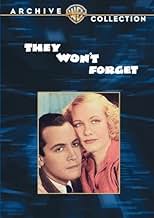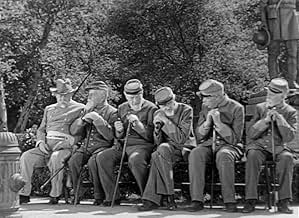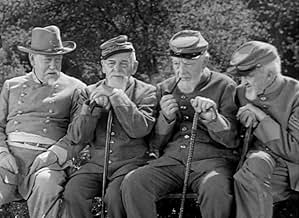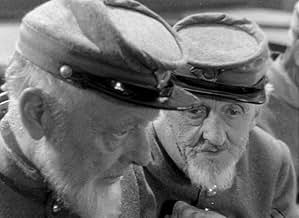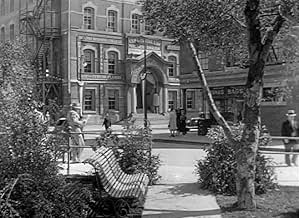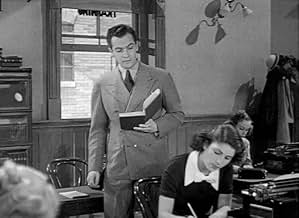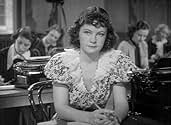IMDb RATING
7.2/10
2.1K
YOUR RATING
A politically ambitious district attorney, unscrupulous tabloid journalists, and regional prejudice combine to charge a teacher with the murder of his student.A politically ambitious district attorney, unscrupulous tabloid journalists, and regional prejudice combine to charge a teacher with the murder of his student.A politically ambitious district attorney, unscrupulous tabloid journalists, and regional prejudice combine to charge a teacher with the murder of his student.
- Director
- Writers
- Stars
- Awards
- 3 wins total
Elisabeth Risdon
- Mrs. Hale
- (as Elizabeth Risdon)
Sibyl Harris
- Mrs. Clay
- (as Sybil Harris)
- Director
- Writers
- All cast & crew
- Production, box office & more at IMDbPro
Featured reviews
This may well be the most depressing movie ever made. Based on a notorious murder case, the audience is spared nothing. I think it took guts for producer Mervyn Leroy to make this film. Many theaters refused to show it. The role of a lifetime for actor Claude Rains, I was impressed by the performance of the actress who plays the wife of the victim of a trial that never should have been. It takes a strong stomach to sit through until the end. The film did win awards, but the Academy of Arts and Sciences was afraid to touch it. In real life the victim of the miscarriage of justice was exonerated many years later, but the political career of the Governor who tried to commute his sentence was ruined.
Mary Clay, played by Lana Turner (living up to her sweater girl fame) very early in her career is a student at a small southern town's business college. She has a crush on her teacher, Professor Robert Hale, played by Edwin Norris. Hale, is a man from the north - not really welcomed in a town that has a parade for Confederate Memorial Day. After the class was dismissed, Mary and a friend went for a soda and Mary forgot her vanity case. She went back to the school and was murdered.
Local newspaper staff bursts into Hale's apartment, tells Hale's wife that he's in jail, and after she faints, newsmen search the apartment, taking a honeymoon photo, searching through drawers.
This movie demonstrates how a quest for political power can taint a trial. Being an "outsider" can make it difficult for a fair trial. Although this takes place in the south, mob justice can and has occurred all over the country during the 1920's and 1930's.
Local newspaper staff bursts into Hale's apartment, tells Hale's wife that he's in jail, and after she faints, newsmen search the apartment, taking a honeymoon photo, searching through drawers.
This movie demonstrates how a quest for political power can taint a trial. Being an "outsider" can make it difficult for a fair trial. Although this takes place in the south, mob justice can and has occurred all over the country during the 1920's and 1930's.
10preppy-3
A young girl (Lana Turner in her first role) is killed in a small Southern town. A Northener, Robert Hale (Edward norris) is accused of it...but is he guilty? It doesn't seem to matter because everybody uses his accusation for their own gain. Fast moving, still relevant (sadly) look at prejudice, gossip, mob rule and media manipulation. Occasionally the characters give out unmotivated speeches (especially Hale's wife), but the movie is very well-written and acted with Claude Rain chewing the scenery again and again. A must see...don't miss this one!
Flawless blending of cynicism, humor and tragedy, this re-enactment of a real-life murder in the south consciously downplays the real-life anti-semitism in the real murder of Mary Phagan case, but carry more of an emotional wallop than the Jack Lemmon made-for-TV docudrama -- although the latter is still good on its own terms. Lana Turner has an impressive screen debut as the murder victim. Gloria Dickson is very powerful as the defendant's wife, and Claude Rains is magnificent as the politically minded prosecutor, but Allyn Joslyn as the cynical, burnt out reporter steals the show. A truly excellent example of how historically based movies can be among the most memorable.
"They Won't Forget" and neither will you if you've seen this chilling depression-era drama based on an actual murder case. Some of the scenes are so real, they're scary. One look at gimlet-eyed Trevor Bardette with a voice from the grave is like seeing death incarnate and enough to freeze a platoon of marines in their tracks. Then there's hapless Clinton Rosemon, his pleas for mercy so achingly real, they echo across generations of tormented black souls. Also not to be overlooked is the bereaved Gloria Dickson. Her righteous anger at movie's end is so heart-felt, I expect it probably was. Together with the wily District Attorney Claude Rains, there's an uncommon authority to this searing drama of justice gone wrong.
There's also an uncommon richness of detail. The script, for all its sprawl, remains tight and unrelenting, a genuine testament to writers Rossen and Kandel. Then too, producer Le Roy pulled out all the stops and the results show it. No one acts without apparent reason. Everyone has understandable motivations for doing what they do. That's why the upshot is so tragic. It's as though there's an on-rushing train nobody can stop because the momentum is carried by an infernal logic greater than the demands of justice. Despite appearances, it's not an anti-lynching film, though it is that. Rather, it's a down and dirty look at the cynical roots of injustice. From lowly pool hall to lofty city council, no one wants to convict an innocent man, but then no one much cares either. This movie stands as a fine example of why Warner Bros. was the studio of record during the stressed-out 1930's. Anyway, for guys who don't like the gloomy theme, there's always the chance to catch Lana Turner as she juggles two balloons while sashaying up the sidewalk in the film's most famous scene.
All in all-- a classic of 30's social realism, with Hollywood at its unapologetic best.
There's also an uncommon richness of detail. The script, for all its sprawl, remains tight and unrelenting, a genuine testament to writers Rossen and Kandel. Then too, producer Le Roy pulled out all the stops and the results show it. No one acts without apparent reason. Everyone has understandable motivations for doing what they do. That's why the upshot is so tragic. It's as though there's an on-rushing train nobody can stop because the momentum is carried by an infernal logic greater than the demands of justice. Despite appearances, it's not an anti-lynching film, though it is that. Rather, it's a down and dirty look at the cynical roots of injustice. From lowly pool hall to lofty city council, no one wants to convict an innocent man, but then no one much cares either. This movie stands as a fine example of why Warner Bros. was the studio of record during the stressed-out 1930's. Anyway, for guys who don't like the gloomy theme, there's always the chance to catch Lana Turner as she juggles two balloons while sashaying up the sidewalk in the film's most famous scene.
All in all-- a classic of 30's social realism, with Hollywood at its unapologetic best.
Did you know
- TriviaThe novel "Death in the Deep South" and this movie version were based on the notorious murder trial and subsequent lynching of Leo Frank. The film mentions the suspect's Northern background, which was a factor in his lynching, but does not mention that he was Jewish. The real-life victim, Mary Phagan, was only 13 years old, a far cry from Lana Turner's 16-year-old "sweater girl."
- GoofsDuring the entire trial the shadow of the window is showing in the same place; behind the witness chair/over the back door of the courtroom.
- Quotes
Drugstore Clerk: What'll it all be be, ladies?
Imogene Mayfield: Dope and cherry, Fred.
Drugstore Clerk: [to Mary] How about you, half-pint?
Mary Clay: Make mine a chocolate malt and drop an egg in it as fresh as you are.
Drugstore Clerk: The hens don't lay 'em that good.
- ConnectionsFeatured in Hollywood and the Stars: The Angry Screen (1964)
- SoundtracksKingdom Coming
(1862) (uncredited)
aka "The Year of Jubilo"
Music by Henry Clay Work
Played during the opening credits
- How long is They Won't Forget?Powered by Alexa
Details
- Runtime
- 1h 35m(95 min)
- Color
- Sound mix
- Aspect ratio
- 1.37 : 1
Contribute to this page
Suggest an edit or add missing content


